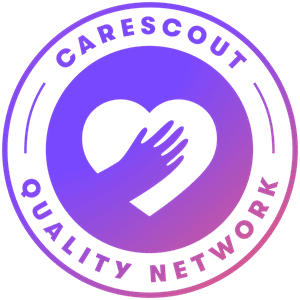Caring for a loved one with cognitive impairment can be challenging, but understanding their symptoms and knowing how to help can make a significant difference. Cognitive impairment has many possible causes, including medication side effects, diseases, multiple illnesses, depression, or dementia. As a caregiver, your role is pivotal in creating a supportive environment and improving their quality of life.
Recognizing Symptoms of Cognitive Impairment
Your loved one may be showing signs of cognitive impairment if they:
- Frequently forget things or important events, like appointments.
- Lose their train of thought during conversations, reading, or watching movies.
- Struggle with decision-making, following instructions, or completing tasks.
- Get lost in familiar places or feel disoriented.
- Exhibit impulsive behavior or poor judgment.
- Seem to withdraw from activities or social interactions, which you or others have noticed.
In addition, they might also experience emotional and behavioral changes, such as:
- Depression
- Anxiety
- Irritability or aggression
- Apathy and lack of engagement
How You Can Help Your Loved One
Here are some practical tips to ensure they feel supported and understood:
- Keep Communication Simple: Use direct, concise, and clear language to make instructions or conversations easier to follow.
- Adjust Your Tone: Speak calmly and control the volume and rhythm of your voice to provide reassurance.
- Respect Their Limits: Recognize when they need rest or are overwhelmed, and adjust your expectations accordingly.
- Use Nonverbal Cues: Direct eye contact or a gentle touch (when appropriate) can help maintain their attention and create a connection.
- Create Routines: Structured schedules and consistent procedures reduce confusion and provide a sense of stability.
- Offer Gentle Guidance: Supervise tasks involving safety concerns, and demonstrate steps to help them understand everyday activities.
- Observe and Ask: Don’t assume they can perform tasks as they once did. Instead, ask how they approach a problem or watch their performance for insight.
Aging or Dementia? Key Differences
It can be difficult to distinguish between typical aging and signs of dementia. Use this guide to help:

(Source: Adapted from the American Medical Association)
When to Seek Help
If you’re ever unsure about how to support your loved one or feel overwhelmed, reach out to Caretech for assistance at (402) 697-5121. Remember, you don’t have to navigate this journey alone.
By approaching caregiving with empathy, understanding, and practical strategies, you can help your loved one feel valued, secure, and supported in their daily life.
Ever considered being paid to care for your loved one? Did you know family and friends are paid every day to care for a loved one? Reach out to a Care Representative at Caretech to learn how you can get paid to care for a family or friend today!
Caretech
11011 Q St Suite 101C
Omaha, Nebraska 68137
Phone: (402) 697-5121
- 24-Hour Home Care in Scottsbluff: Trusted Support When You Need It Most - May 29, 2025
- How to Become a Respite Care Provider and Support Families in Need - May 27, 2025
- Services for Older Adults Living at Home - May 23, 2025







